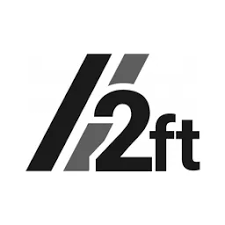Accessing online content has become an integral part of daily life. However, many websites, especially news outlets and academic journals, place paywalls or subscription barriers between users and their content. To navigate this challenge, tools like the 12ft Ladder have emerged, promising to help users bypass these restrictions. But as these tools gain popularity, a crucial question arises: Is 12ft Ladder legal? In this comprehensive article, we will explore the functionality of 12ft Ladder, its legal implications, and the broader context of online content access.
Understanding 12ft Ladder
12ft Ladder is a web tool designed to help users bypass paywalls on websites. The website’s title, “12ft Ladder – Bypass Paywalls, Unlock Online Content Easily,” reflects its primary function: modifying web URLs to access restricted content without the need for a subscription or payment. The tool operates under the premise that users can retrieve content that would otherwise be hidden behind a paywall by altering the URL of the page they wish to view.
The tool’s description—“12ft Ladder – Bypass paywalls effortlessly with the 12ft Ladder. Access restricted content by modifying web URLs”—highlights its simplicity and ease of use. By modifying the URL, users can potentially access articles, research papers, and other content without directly paying for it.
How 12ft Ladder Works
To understand the legal implications of using 12ft Ladder, it’s essential to know how it functions. When a user wants to access a paywalled article, they enter the URL into the 12ft Ladder tool. The tool then processes this URL to bypass the paywall and display the content. This process typically involves altering the URL parameters or using methods to deceive the website’s paywall detection mechanisms.
The technology behind 12ft Ladder is relatively straightforward. It relies on manipulating web requests to access content as if the user were authenticated or authorized to view it. However, it does not involve illegal hacking or data breaches. Instead, it leverages technical loopholes or weaknesses in paywall implementations to achieve its goals.
Legal Considerations
The legality of using tools like 12ft Ladder can be complex and depends on various factors, including the jurisdiction and the specific terms of service of the websites in question. Here are some key legal considerations:
- Terms of Service Violations: Most websites have terms of service (ToS) agreements that users must agree to before accessing their content. These agreements often include clauses prohibiting the circumvention of paywalls or access controls. By using 12ft Ladder to bypass paywalls, users may be violating these terms. While this may not always lead to legal consequences, it could result in penalties such as being banned from the site or facing legal action from the website owner.
- Copyright and Intellectual Property Laws: Content behind paywalls is often protected by copyright and intellectual property laws. By bypassing paywalls, users may be accessing copyrighted material without proper authorization. This could potentially infringe on the copyright holder’s rights, although enforcement may vary. In general, accessing content without proper authorization can be legally risky, especially if it involves distributing or sharing the content.
- Legal Precedents and Jurisprudence: The legal landscape surrounding tools like 12ft Ladder is evolving. Courts have addressed similar issues in the past, with varying outcomes. For instance, some jurisdictions have ruled that circumventing paywalls is a violation of terms of service and can lead to legal repercussions. However, other cases have focused on the fairness and public interest aspects of accessing information.
- Ethical Considerations: Beyond legal issues, there are ethical questions regarding the use of tools like 12ft Ladder. Paywalls are often implemented to support the financial sustainability of content creators and publishers. By bypassing these barriers, users may undermine the business model of journalism and content production. Ethical considerations also involve the responsibility of users to support content creators by respecting their access models and paying for content when required.
Alternatives to 12ft Ladder
For users seeking access to content while adhering to legal and ethical standards, several alternatives exist:
- Subscriptions and Memberships: The most straightforward way to access content behind paywalls is by subscribing to the services that offer it. Many websites provide various subscription options, including monthly or annual plans, that grant access to their content.
- Free Trials and Limited Access: Some websites offer free trials or limited access to their content. Users can take advantage of these offers to access articles or research papers without a full subscription.
- Open Access Journals and Public Resources: For academic and research content, open access journals and public repositories offer free access to high-quality research. Websites like Google Scholar and PubMed provide access to a wealth of research articles without paywalls.
- Library and Institutional Access: Many public and university libraries provide access to subscription-based content. Users can often access these resources by visiting their local library or using their library’s online portal.
- Content Aggregators and News Aggregators: Some content aggregators and news aggregators provide summaries or excerpts of paywalled content. These services can offer valuable information without needing to bypass paywalls.
Conclusion
The use of tools like 12ft Ladder raises significant legal and ethical questions. While the technology itself does not involve illegal hacking or data breaches, it can violate terms of service agreements and potentially infringe on copyright laws. Users must weigh the legal risks and ethical considerations before using such tools.
Accessing content through legal and ethical means, such as subscriptions, free trials, or open access resources, remains the best approach for supporting content creators and respecting intellectual property rights. As the digital landscape continues to evolve, it is crucial for users to stay informed about the legal implications of their online activities and make choices that align with both legal standards and ethical principles.
